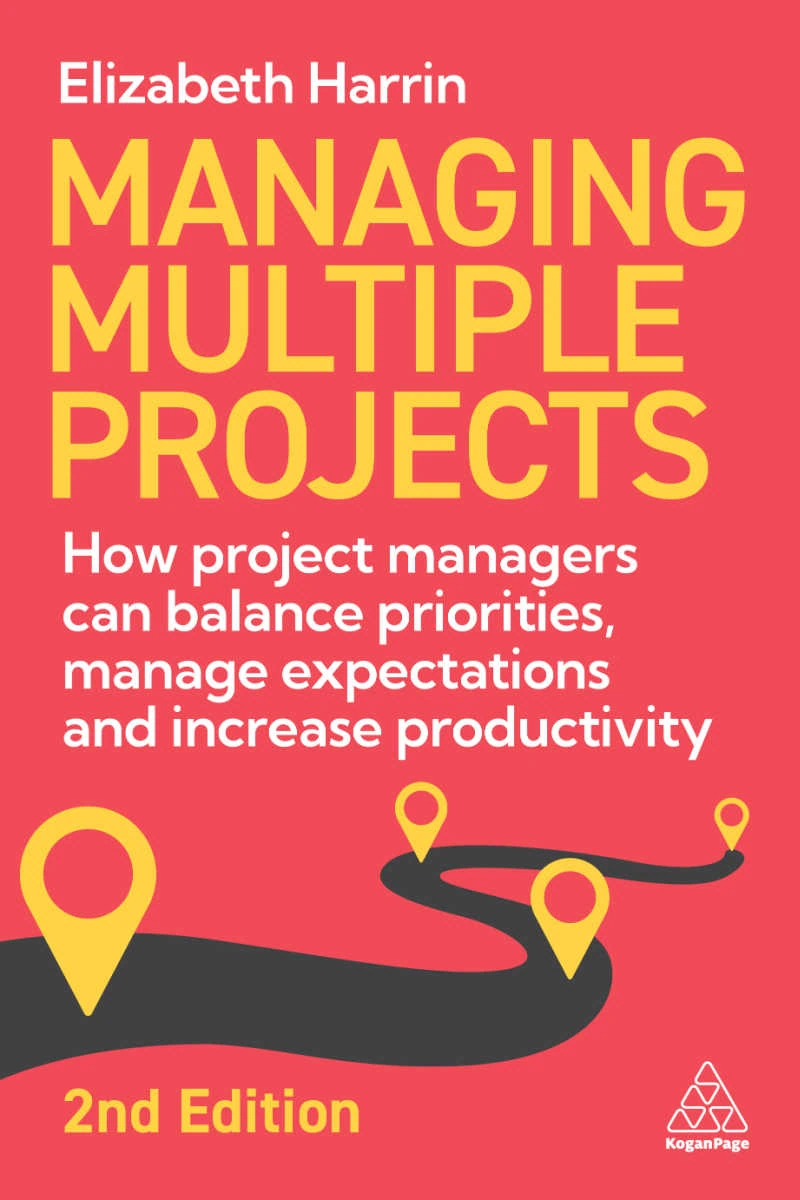11 Personal lessons I’ve learned as a project manager
This blog is reader-supported. When you purchase something through an affiliate link on this site, I may earn some coffee money. Thanks! Learn more.
I decided to be a project manager.
Many people fall into the role, perhaps moving from a technical, team leader or subject matter expert position — maybe that describes your journey into project management.
Admittedly, it wasn’t until I started working that I knew such a job existed, but when I realized I did, I knew it was for me.
Even though I thought I knew what I was letting myself in for, there were still some things I didn’t know about being a project manager. Watching people do the job isn’t the same as being immersed in it yourself.
So what is it like to be a project manager?
Here are 11 of the most important lessons I have learned as a project manager… things I didn’t know back in 2000 when I started out.
1. Project management is so varied
One of the things you learn as a project manager (quite quickly) is that the job is varied. Every project is unique.
Part of the attraction for me of working in a project environment is that I would be working on different things. What I hadn’t appreciated is that each project would be so different. Even within the same company the project team, deliverables, departments I was delivering for and the skills required would be very different.
It’s a job that is never the same, and that’s a massive benefit.
I included a load of case studies from people who work in project management in my first book: Shortcuts to Success: Project Management in the Real World, because I knew would-be project managers needed examples of what the job was actually like.

2. The technology will change
I suppose I should have seen this coming, but back in 2000 I thought I was learning MS Project and that would be enough.
Since I started managing projects, online collaboration tools have become a much larger part of a project manager’s repertoire.
The technology required to do our jobs, and the understanding of the technology in use by other departments and our customers, is a much larger part of project management than I ever expected (not that I thought about it that much at the time).
Collaboration Tools for Project Managers is a book that talks about how to choose, implement and use collaboration tools at work for your team – highly recommended if I do say so myself 🙂
3. There is no need to specialize (but you can if you wanted to)
I began project managing in insurance. More specifically than that, insurance IT.
Insurance is an industry with a specific language (more on vocabulary below) and there was a point where I thought that I would need to stay in the industry.
I thought I had some special knowledge — in reality, I did, but that’s not to say that moving industry is impossible. You can learn the special knowledge of other industries, and my shift to healthcare was relatively easy.
If you want to specialize in a particular type of project management or an industry, you can. I love IT, and I can’t see myself suddenly making an industry shift into construction projects or anything else at the moment.
But every industry uses IT, so IT project management is a very transferable skill — if I wanted to shift industries again, I could.

4. There is a complete vocabulary to learn
Vocab is something that creeps up on you. You learn it through professional study, training courses, talking to colleagues, surfing the internet, reading project management blogs like this one.
Because you don’t know that you are learning it, you suddenly wake up one day and realize that you speak project management.
Many jobs have specialist
5. Project management is a life skill
What did I learn from project management? I learned how to manage my life better!
Project management is not just a job, it’s a life skill. You can use a project plan for pretty much anything, from moving house to planning a wedding.
When you have project management skills, I think you become more organized, more structured in the way you approach tasks and more able to take on responsibility for co-ordinating groups.
That’s why I think project management should be taught in schools.

6. No one will understand your job
Another thing I didn’t realize about being a project manager is that no one would understand what I do all day.
And that’s not just family and friends. People at work (those who are not project managers) often don’t get what it is that I do.
Even key stakeholders can be resistant to having a project manager on the team. Because who doesn’t love having to follow project management processes?
From the outside, project managers look like the people who tell everyone else what to do. That’s part of it (although there isn’t much ‘telling’, at least, not the way I do it). It is far more about relationship building to get things done, but doesn’t that sound like buzz words?
My job is to make it easy for other people to do their jobs, and if that doesn’t sound like a non-job then I don’t know what does.
I still struggle to explain what a project manager does, but I think big projects like the Olympics, the Jubilee and a Royal Wedding have perhaps made people a bit more aware about what managing a project is all about.
7. Projects don’t finish the way the books say they will
Coming off a project is hard. In my experience, there is a slow ramp down as the work dries up and you sort out the final few tasks.
The pub beckons for end-of-project drinks, but even then you might have some activities that haven’t truly finished.
Don’t expect there to be a final closure meeting and the next day the kick off for your next project. Project lifecycles are rarely so neat! You’re managing your ‘future projects’ at the same time as your ‘current projects’ and expected to do it all.
(It does get better when you can finally drop the old project.)
My transitions between projects have normally been drawn out and messy because often you pick up another before the first is closed properly, which can be hard.

8. You have to keep learning
You have to keep learning in this job. AI simply wasn’t on the horizon when I started out, but now it’s a hot trending topic in project management, and something we all need to understand.
You only have to look at research into AI in project delivery to see that its a particular focus area at the moment.
Luckily, if you like the job, the learning part isn’t hard. There are loads of conferences, YouTube channels, social media content creators and books that you can get stuck into.
The project experiences you chalk up are also a huge learning opportunity.
9. There is a lot of scope to lead if you take it
As a project manager, I’ve found myself in positions of authority. On one project, the team worked directly for me. On others, I was responsible for a budget of many millions. It can be a very responsible job.
However, it is rare that I have been explicitly told: “Here is the responsibility.”
It’s more common that I’ve just stepped up because there was no one else, and then suddenly I’ve been leading. Project success, here we come!
10. Ask for forgiveness, not permission
A wise manager I once had told me it was easier to ask for forgiveness than permission.
In other words, take the initiative. Do what is right for the project. And I’ve never had anyone complain.
Mostly, senior managers are grateful that someone is helping, stepping up and doing what needs to be done to get the project delivered.
11. Project failure happens (and you’ll survive)
No one wants their project to fail, but it does happen.
In my experience, there is normally something you can salvage. Something you can put live, even if the whole project doesn’t launch.
There are lessons for any organization if a project fails (and you’ll probably have to write a detailed report on them), but personally, you can often look back and take something away from a failure too.
Here’s a secret: Some projects feel like failures even if they launch on time, on budget and with the right scope. Not every project is destined for greatness.
Is being a project manager hard?
So, after all those lessons and learnings from working as a project manager, would I say that doing the job is hard?
No, it’s fun. Most of the time.
Honestly, it is hard, because if it wasn’t stretching, it wouldn’t be worth doing.
There are a lot of personalities and stakeholders involved. There are a lot of varied skills like having to manage a budget and manage risk. Emotional intelligence is a key factor in your personal success.
But if you love the challenge, and you don’t mind hard work, you’ll enjoy the variety and the feeling of a go live day when the thing you’ve been planning for is finally ready for the world to see.
Wondering if project management is the right job for you?
You might find these resources help you decide!
- Project management job titles explained
- Understanding project management job descriptions (this article will also help you write a job description if you are hiring or — shock! — you’ve started a job and your manager doesn’t have a JD for what you do.
- Learn more about being a project manager in my book, Project Manager.
- Find out if a degree in project management could be right for you.

